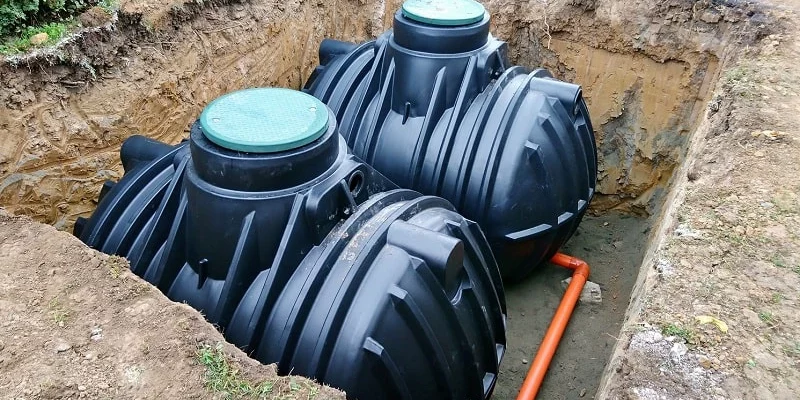
Of all the plumbing troubles you may have to deal with, a septic issue is easily one of the most stressful ones. Beyond the unpleasant odors, a malfunctioning septic system can pose serious health risks that no one wants to deal with.
The good news? With the right maintenance habits, you can prevent these problems before they start. Here, Transou’s Plumbing & Septic shares essential tips to keep your septic system in top shape and protect your home from unexpected mess.
Monitor Water Usage
Managing your water usage is key to maintaining your septic system in optimal condition. Letting too much water into your drainage and pipes can easily overwhelm your system and lead to sludge overflow and drain field saturation which can also cause environmental hazards and health risks, besides elevating the potential of clogs.
Try practicing water-saving measures like shorter shower duration or using efficient fixtures.
Mind What You Flush
If too much water can harm your septic system, worse can happen if you let undesirable wastes into your network. Never flush clog-causing wastes like paper, wipes, grease, and food particles down your drain, as they can easily block and burst your pipes in the long run.
Use Septic-Safe Products
If you’re still using chemical drain cleaners, consider this the sign to stop immediately. These acidic solutions are not advisable since they’re corrosive and ineffective—harming your pipes without fully tackling all types of blockages in your system. Instead, use natural cleaners like baking soda and vinegar to avoid corroding your system and contaminating the environment.
Maintain Your Drainfield
It’s also an important practice to help alleviate the environmental impact of your wastewater while maintaining the efficient drainage of your runoff. Avoid putting up structures, heavy objects, or adding more soil to your drain field, as this can damage the underground pipes.
Keep Roots Away From Your Septic System
Tree root infestation is one of the most common causes of damaged pipes, especially in your sewer system. Your wastewater can provide irrigation and nutrients for plants, making them a target for invasive plants. Unless you don’t mind spending too much on a costly sewer pipe repair, keep the greenery on the other side of the fence at all times.
Pump Your Septic Tank Regularly
Expect that your septic tank will become full over time, and clogs and backups will start showing once it reaches its full capacity. To get ahead of the filth, it’s best to have your septic tank pumping regularly scheduled. Septic pumping is best carried out in 2 to 5-year intervals, depending on your usage. Sidelining your much-needed tank clean-out will only leave you scrambling for emergency services once that nasty wastewater finds its way back to your home.
Have Regular Inspections
Most septic problems will alert you to visible signs of malfunctions or failure, allowing you to schedule timely plumbing maintenance before they spiral out of control. However, other underlying issues can’t simply be detected by the untrained eye. For this, your best solution is a regular professional inspection that will disclose troubles formerly undisclosed. Invest in regular inspections and you can save up on repair costs.
Septic Problems That Won’t Leave You? Call Transou’s Plumbing & Septic for Expert-Vetted Solutions
Personal septic care is your first line of defense against bigger plumbing disasters, like a septic tank overflow or a burst sewer line. But there are times when your personal measures aren’t enough for more severe septic issues. Thankfully, you can always ask for professional help to handle the dirty work for you.
Transou’s Plumbing & Septic is your go-to plumber for septic crises. We deliver proven solutions that go deep into the roots of your septic trouble. You can bank on our expertise in comprehensive septic system installation, repair, or maintenance that keeps your septic system in order.
Don’t wait for the stench and backups to be unbearable– call us now!
Contact Us
"*" indicates required fields

Did you know
Hot water is usually the second biggest energy expense in a home, often about 18% of a typical household’s electric bill. A poorly performing water heater can cost you several times more, in addition to constantly running out of heated water!






